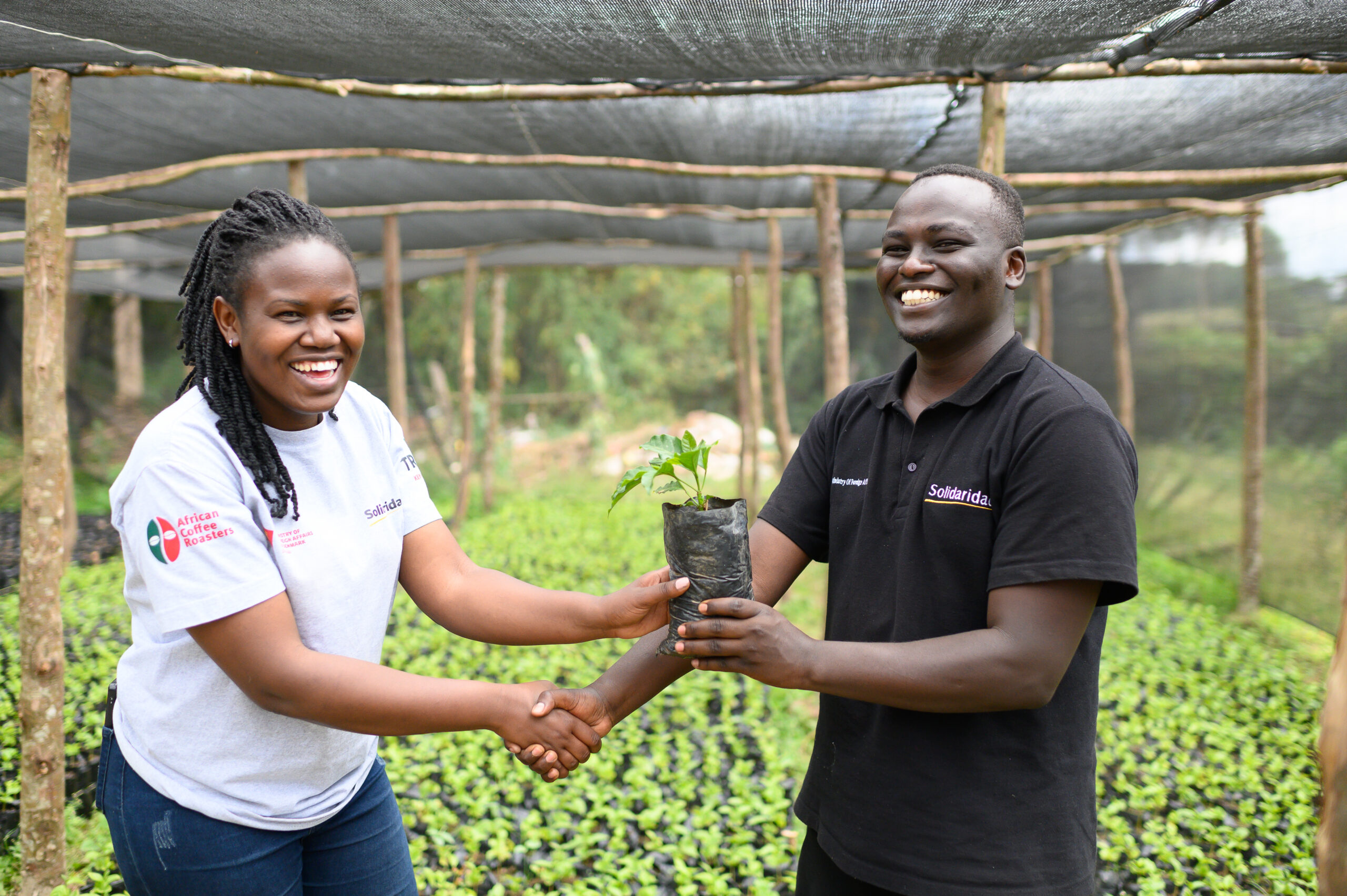Highlights
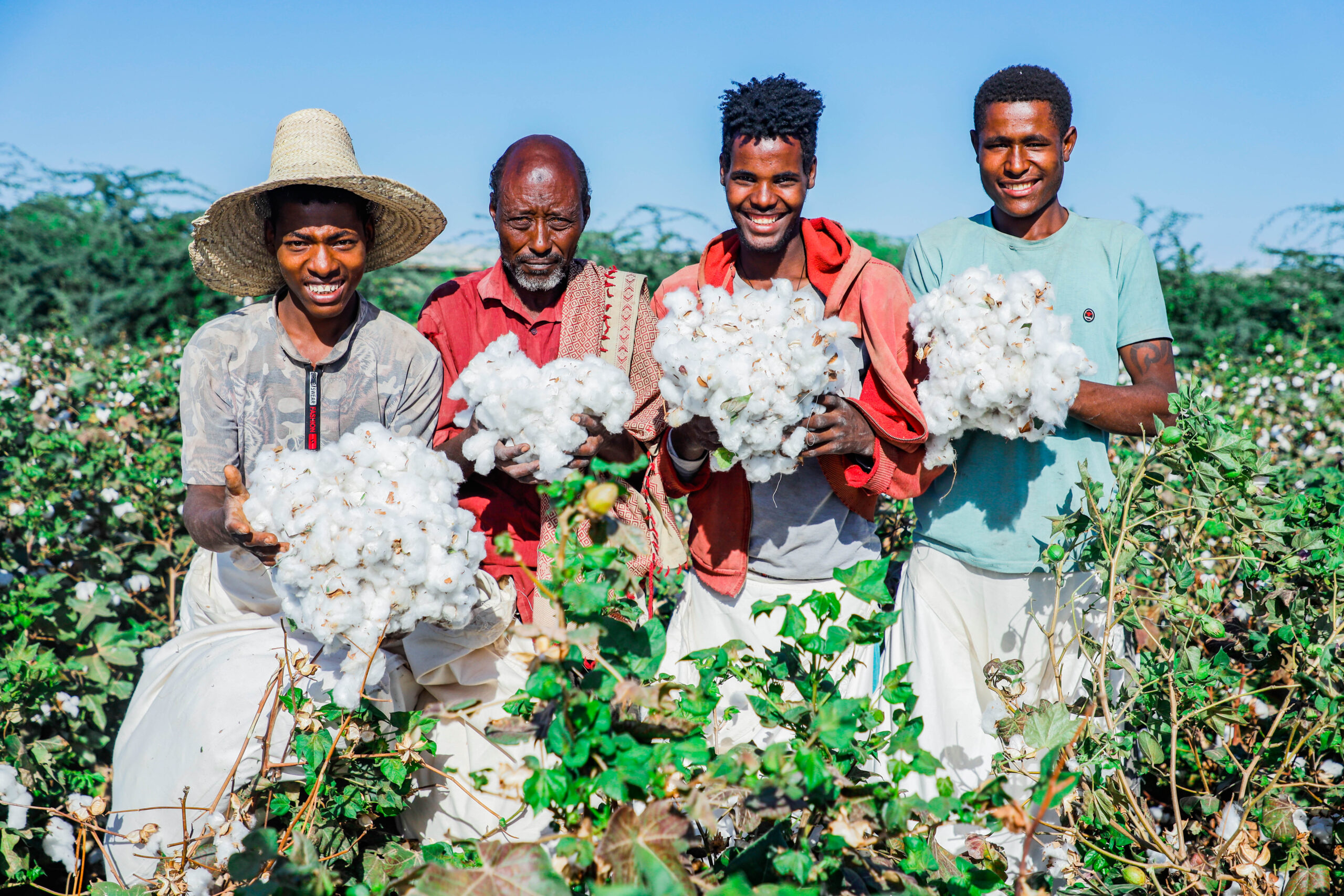
Cotton & Textiles
Our work in Ethiopia’s cotton industry contributed to improved conditions for factory workers, increased compliance with certification and sustainability standards, as well as the sustainable production of 4% of the national cotton lint production.
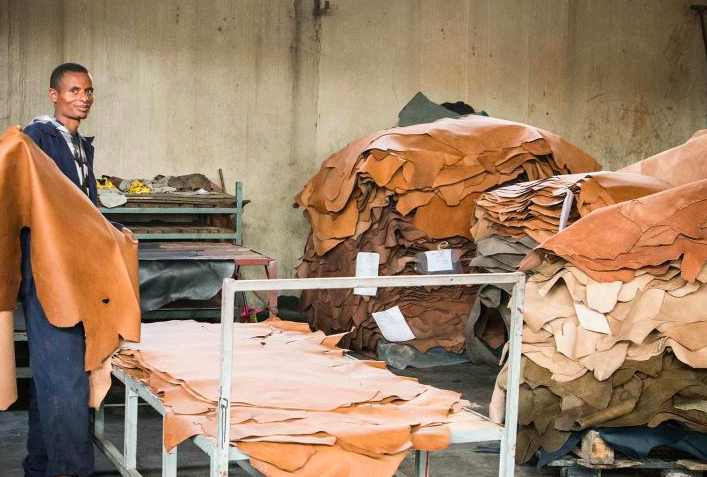
Leather
Our efforts in the leather value chain in Ethiopia’s Modjo City and Colba focused on training on effective resource management and use of the appropriate tools and methods to increase safety and decrease environmental impact during production.
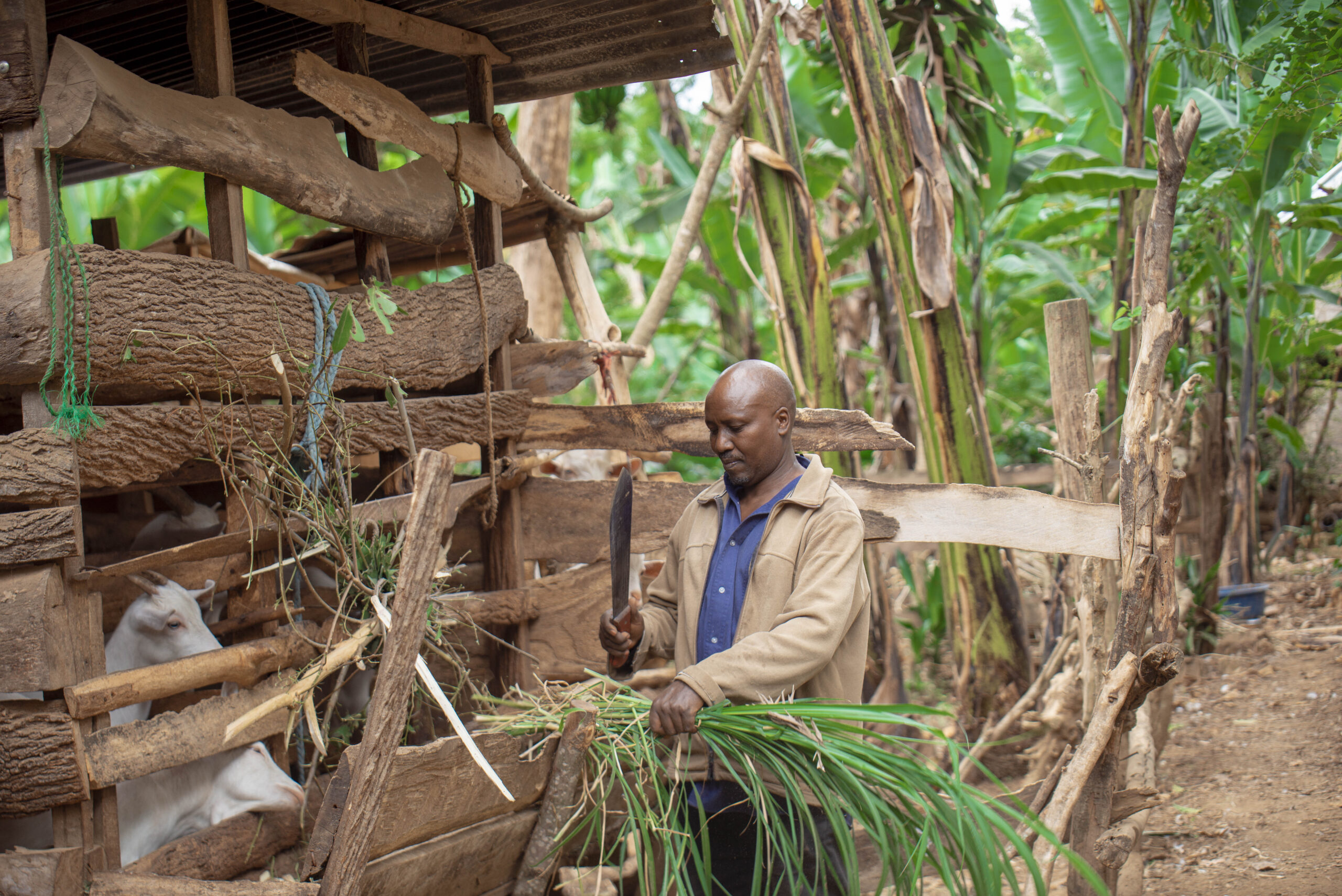
Dairy & Livestock
We worked with dairy farmers to increase access to services and training that would improve production and efficiencies. For example, in Tanzania, farmers reported increased daily milk production, while in Ethiopia two dairy hubs are under development.
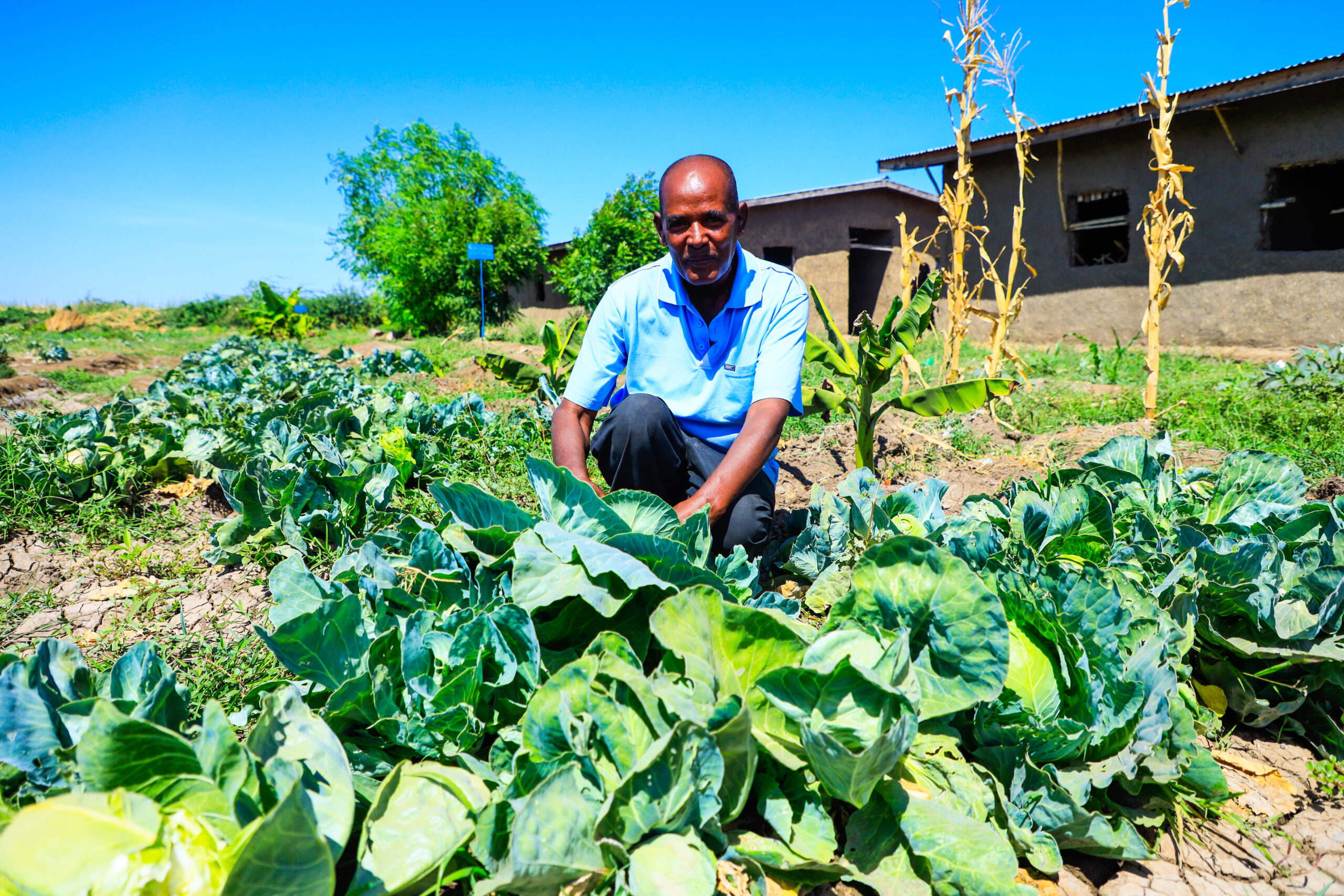
Local Food Systems
Our local food systems work encompassed training horticulture farmers on sustainable practices in Kenya and Tanzania, as well as guiding meetings in Kenya to validate standards for horticulture and design adoption strategies for the national potato strategy.
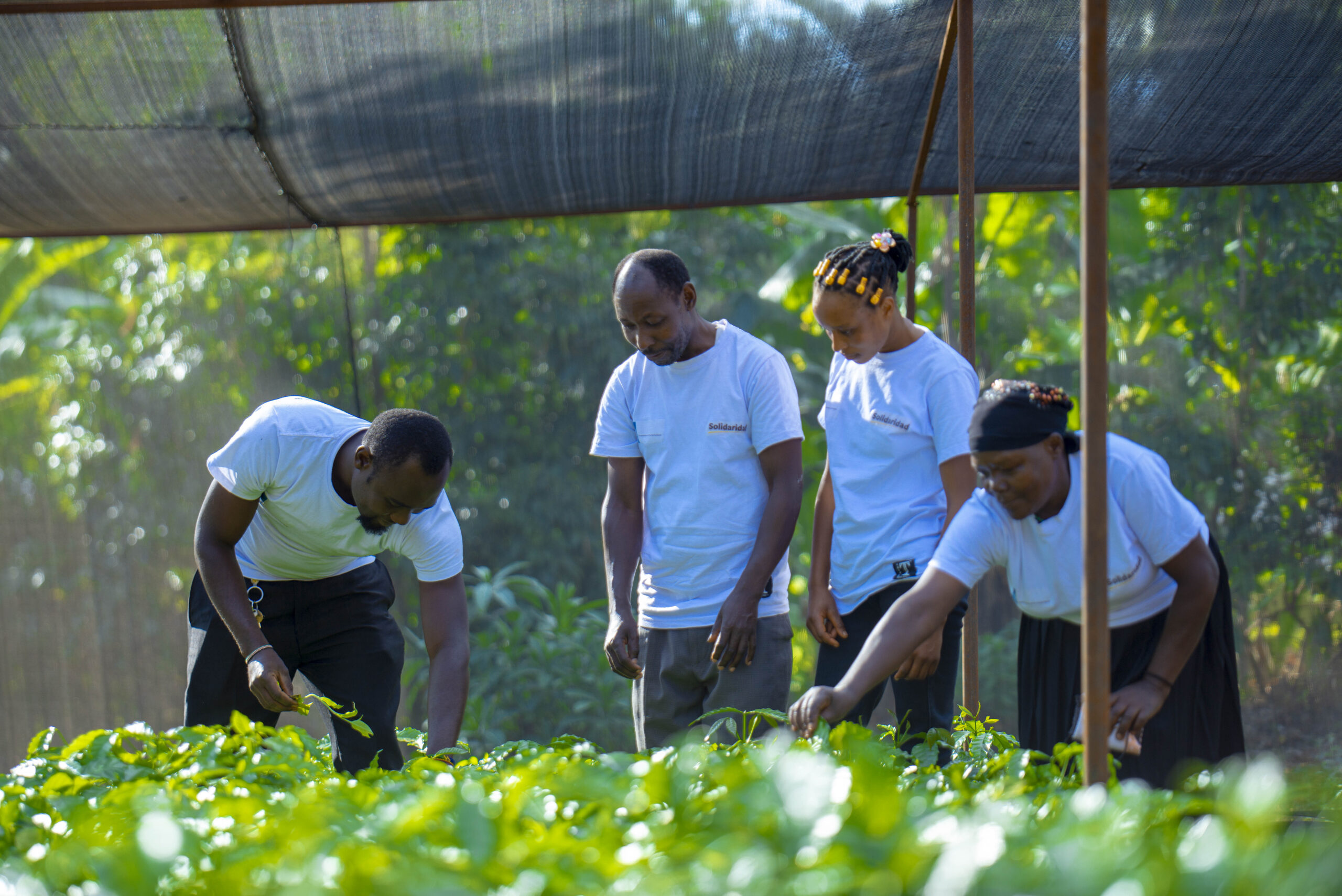
Coffee
Our work contributed to increased coffee productivity in Kenya, Uganda, and Tanzania. We also distributed improved variety coffee seedlings to farmers in Kenya and Tanzania and established microfinance groups in Tanzania that extended loans to members.
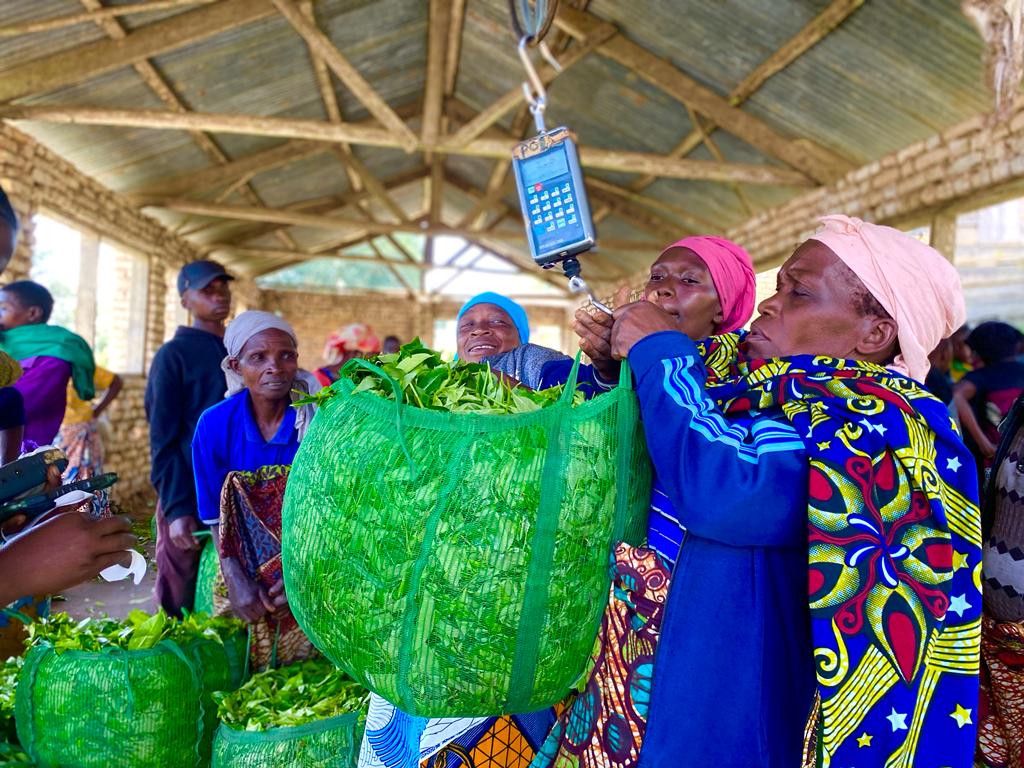
Tea
We worked with tea stakeholders to establish two national associations in Uganda. In both Uganda and Tanzania, we also established two tree nurseries. In Kenya, we promoted multi-stakeholder platform work to improve the national policy and drive dialogue.
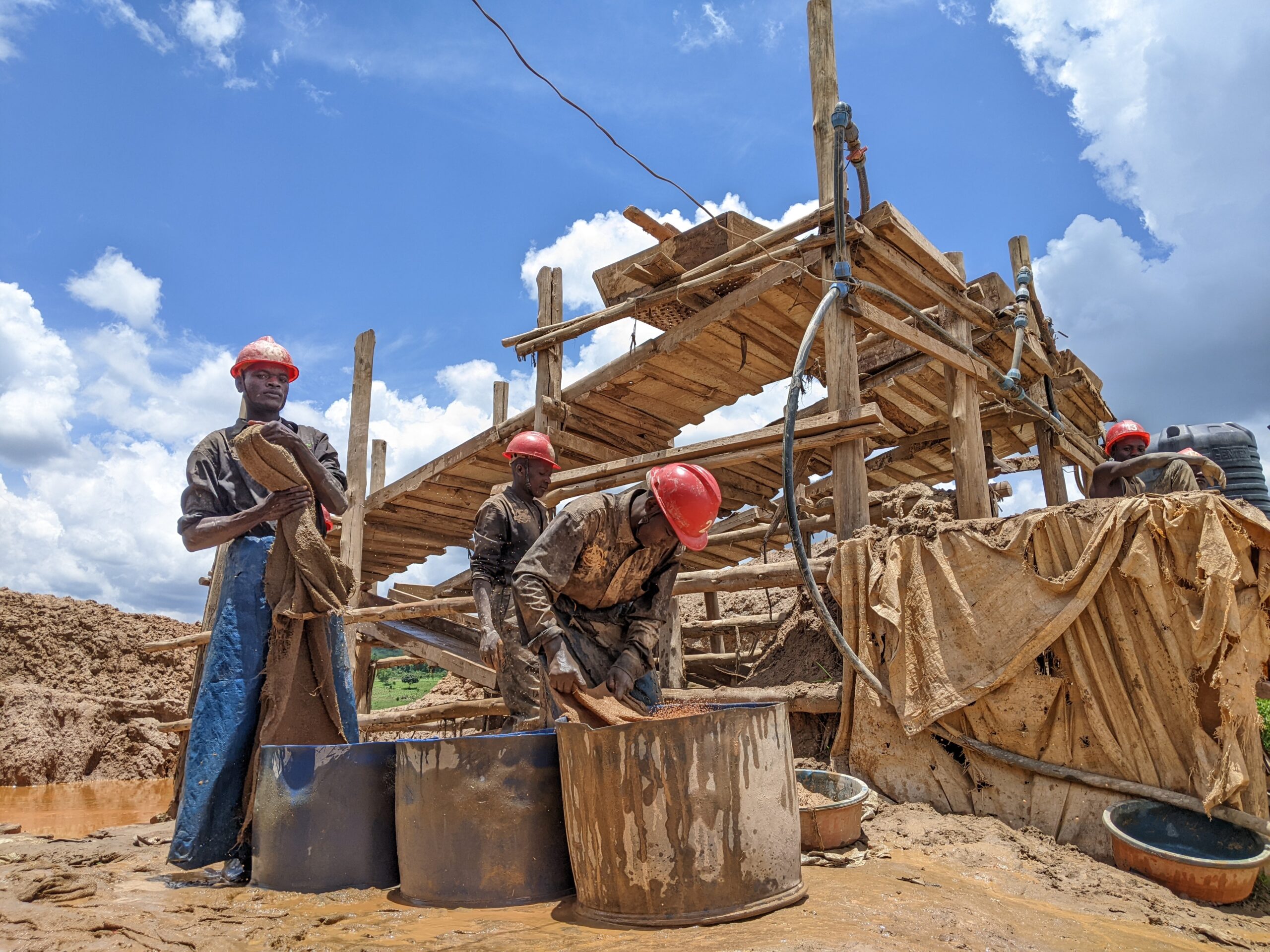
Mining
Our work in artisinal and small-scale mining included facilitating important stakeholder dialogues and benchmarking excursions in Uganda as well as supporting the development of regional advocacy committees and a self-regulatory framework in Kenya.
Results
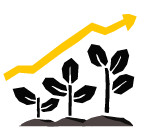
138,950
farmers with improved yield (kg/ha)

107,146
hectares under good agricultural practices

88,908
Workers and miners with access to improved services
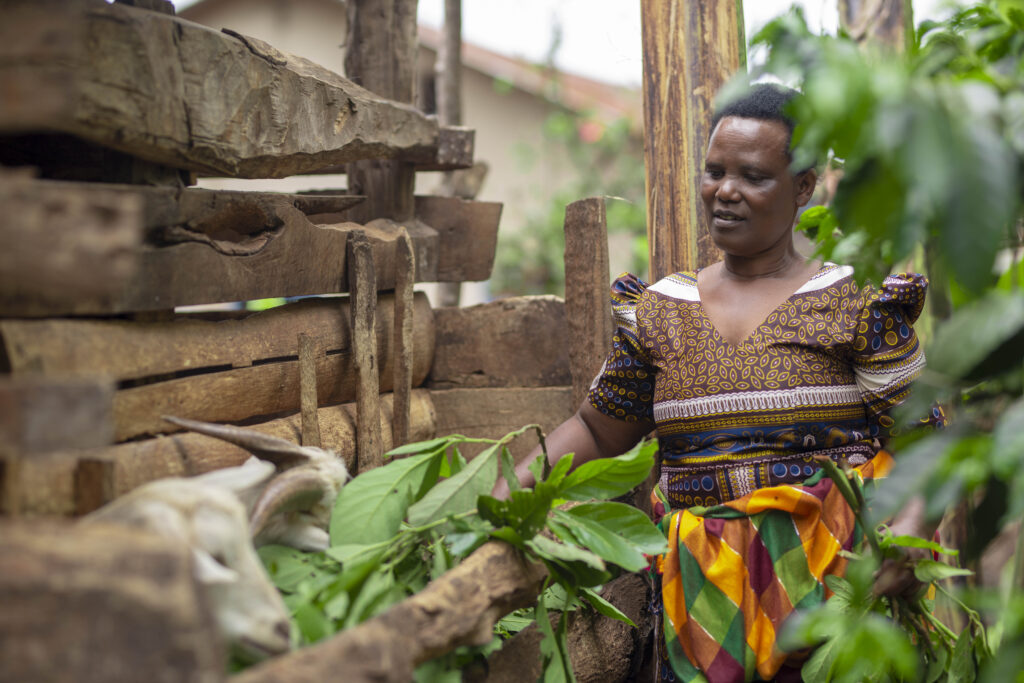
Our work
Re-calibrating the resilience of smallholder producers in East Africa
Everyday, we work to drive sustainable development through four interconnected levels – Good Practices, Sustainable Business Ecosystems, Market Uptake and Enabling Policy Environment. Below are some of the key highlights of our work in 2022.
A central feature of the global recovery process from the COVID pandemic that impacted economies and communities is anchored on strengthening the resilience of our local communities and supply chains. To accelerate community resilience and development in the agriculture, minerals, and manufacturing sectors across sub-Saharan Africa, we continue to design and deliver transformative solutions geared towards enhancing the adaptive capacities and improving the bargaining power of smallholder producers – farmers, workers, and miners – in their value chains.
In all our solutions, we integrate a multi-pronged approach that gives prominence to the roles and contributions of these value chain actors to drive lasting impact. To this end, we have continued to put producers first, prioritize sustainability interventions, and support multi-stakeholder partnerships to address the emerging needs for effective stewardship of sustainable rural economies. In all our efforts, we collaborate with stakeholders across the value chain to foster dialogues and collective action in addressing existing and emerging challenges.
Our human-centred approach has remained key in facilitating adoption of sustainable production at farm and processing levels, reduction of pollution, sustainable sourcing, policy reform and implementation, access to quality services and resources (finance, information and inputs), as well as uptake of responsible business practices — all key ingredients for ensuring sustainable livelihoods while improving production and quality.
In 2022, a total of 105,611 hectares were put under sustainable management in Kenya, Uganda, Tanzania and Ethiopia. In Kenya and Uganda, 21,970 farmers onboarded into the ACORN carbon trading platform, a milestone that is envisaged to incentivize mainstreaming of regenerative agriculture practices, including agroforestry, into traditional farming systems. In the same period, 138,073 farmers reported improved yield (kg/ha) and 125,392 reported improved incomes. The positive trends in farm-level productivity can be attributed to the progressive uptake of good practices, access to affordable credit and markets, and the resultant increase in resilience of smallholder farmers to climate change and other shocks.
We continue to promote market-driven approaches to accelerate transformative and sustainable productivity and profitability. Throughout the year, our efforts prioritized the delivery of tailored training and capacity building interventions in the agriculture, minerals, and manufacturing sectors. We surpassed our target of 285,615 producers — farmers, workers and miners — and reached 311,088 with training on good practices. We delivered training through our tried-and-tested three-tier training model and on-farm demonstrations through demonstration plots. The training model embeds skills and knowledge within communities enhancing uptake and sustainability by using interactive learning tools including peer-to-peer learning, demonstration plots, visual posters and dialogue in local languages.
In the leather, cotton and textiles, and coffee sectors, 53 processors reported reduced pollution following training on pollution reduction, waste management and waste recycling. Processors also reported improved working conditions for 47,210 cotton and textile factory workers.
In 2022, Solidaridad in East and Central Africa reached 311,088 producers, 70% of whom accessed services from local cooperatives, agro-input and service providers. To enhance the institutional capacity of service providers and improve service delivery to producers, 356 leaders from 79 farmer cooperatives in Kenya and Tanzania, received training in business management.
Two studies were conducted on: i) Access to Finance Interventions in Africa, and ii) Green Business, Green Jobs and Green Skills for leather in Kenya and cotton and textile in Ethiopia. The Access to Finance study provided insights on the trends in trade financing for dairy hubs and commercial bank financing for dairy farmers. It also looked at the establishment and linkage of Village Savings and Loans Associations to financial institutions.
Findings cited access to markets as a predictor of access to finance for dairy farmers. Reliable cash flow was also linked to higher access to financial services, as lenders prefer borrowers with quick cash flow. Access to trade credit from offtakers also proved efficient, compared to commercial lenders, as it ensured timely payment of producers and service providers by cooperatives who wait longer periods to receive payments from processors. Cooperatives that benefited from credit services from offtakers (e.g. Tanga Fresh) enjoyed economies of scale and transferred the same to farmers in the form of affordable inputs and services.
In Kenya and Uganda, two companies received 100,000 Euros in financing from PlusPlus: a crowd funding platform. Five enterprises in Kenya and Uganda were identified and linked with PlusPlus for credit-worthiness assessments but did not qualify for funding. In Uganda, one loan beneficiary was transferred to Truvalu Uganda.
To stimulate inclusive and sustainable sector growth and development, we prioritized targeted interventions geared towards ensuring the voices of smallholder farmers, workers and miners in decision-making. Throughout the year, our impact was centered on strengthening the capacity of farmer civil society organizations, miners’ associations, and workers’ unions. In the coffee, food systems, and tea value chains, more than 25 civil society organizations and unions received training on advocacy and lobbying according to SMART principles. The training equipped producers with the skills to participate in and actively contribute to sector dialogues.
In Ethiopia, 6,750 factory workers were unionised and mobilized to participate in dialogues and advocate for collective bargaining agreements in six of the ten textile beneficiary processing factories. The unions are recognized by both the factory management and workers’ federation. The workers’ federation is an authorized and independent body which is recognized by the government and the International Labour Organisation. Stakeholders were also supported to develop and submit recommendations for an upcoming minimum wage regulation to the Prime Minister’s Office and Parliament.
We also facilitated establishment and/or operationalization of tea, coffee, gold and food products sector multi-stakeholder platforms at the local and national levels and mobilized stakeholders to participate. These platforms provided an opportunity for stakeholders — including government, farmers, workers and miners — to collectively articulate their challenges and call for action on, among other things, development and implementation of enabling policies, fair value distribution, and decent work and wages/prices. A key milestone was the incorporation of stakeholder recommendations in the draft tea policies for both Kenya and Uganda.
To improve market access for smallholder producers through standards compliance, Solidaridad trained farmers and processors on the requirements for international standards certification.
In Ethiopia, 70% of the factories that were trained on requirements for OEKO-STeP and/or BSCI/WRAP international standards achieved certification. In Kenya and Tanzania, more than ten tea and coffee cooperatives received training on C.A.F.E Practice and Rainforest Alliance certification. In Tanzania, certified cooperatives were linked with Taylor Winch, a coffee exporter. Farmers in Tanzania produced and exported a total of 280.4 metric tons of certified coffee. In Kenya, 191,751 kgs of coffee were Rainforest certified representing 1,342,257 kgs of certified green coffee. Since then, 51,980 kgs have been sold at an average price of US$ 10 to 20 above the National Coffee Exchange auction price per 60 kg bag.
Solidaridad also facilitated business-to-business forums to link producers with local and international buyers. We facilitated the Kenya Coffee Directorate to participate in the 2022 Specialty Coffee Association Expo to improve visibility and secure new markets for Kenyan coffee. The East African Tea Trade Association was also facilitated to participate in the Third Pakistan Tea Convention to strengthen relationships with existing buyers and attract new buyers. At the regional level, Solidaridad initiated discussions with European importers, specifically ECOM Group (Switzerland), Supremo (Belgium), and Pino Coffee (UK), to facilitate uptake of locally-produced coffee.
To enable more farmers to meet the market requirements and attract competitive prices, we also supported 18,974 Tanzanian farmers in adopting and complying with voluntary sustainability standards which would potentially give them access to European markets.
Most Significant Changes
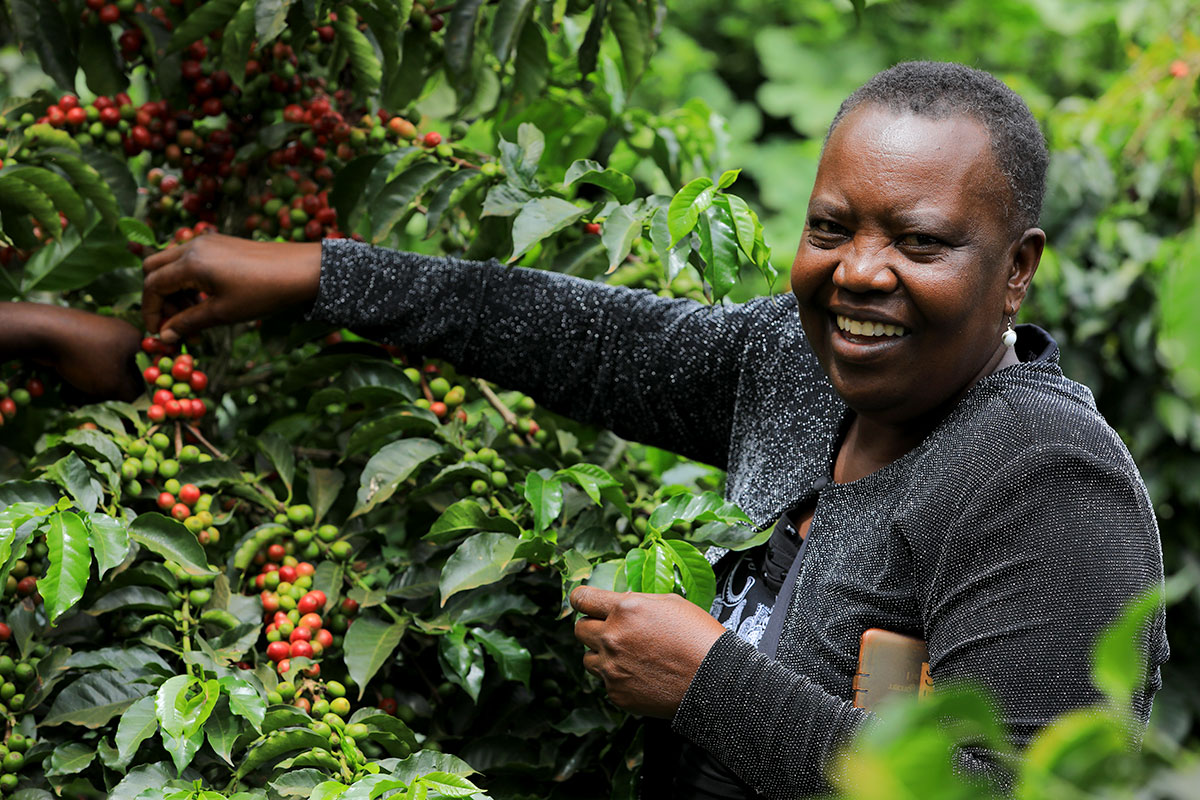
MARY: A LEADER BUILDING HER BUSINESS IN COFFEE
Mary Wairimu Oloo, who lives in Kenya’s Trans Nzoia County, moved back to her family’s coffee farm after retiring from a government role. Since then she has been diligently improving productivity on the farm, diversifying her income and helping others along the way.
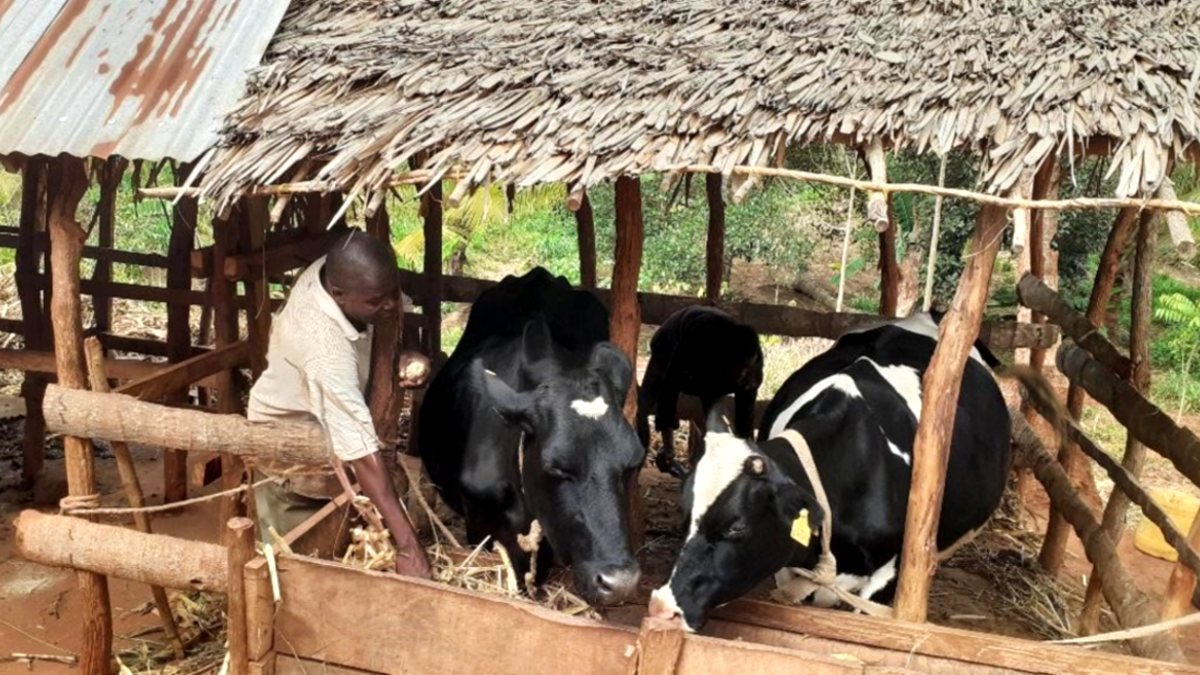
DAIRY 2025: UNLOCKING SMALLHOLDER PRODUCTIVITY IN TANZANIA
We piloted innovative, climate-smart business models through the Dairy 2025: Catalyst for Business Driven and Climate-Smart Dairy Farming project. Hamisi Kumba Alawi, a dairy farmer from Tanzania’s Mkinga District is one of more than 2,000 smallholders increasing their productivity by adopting these good practices
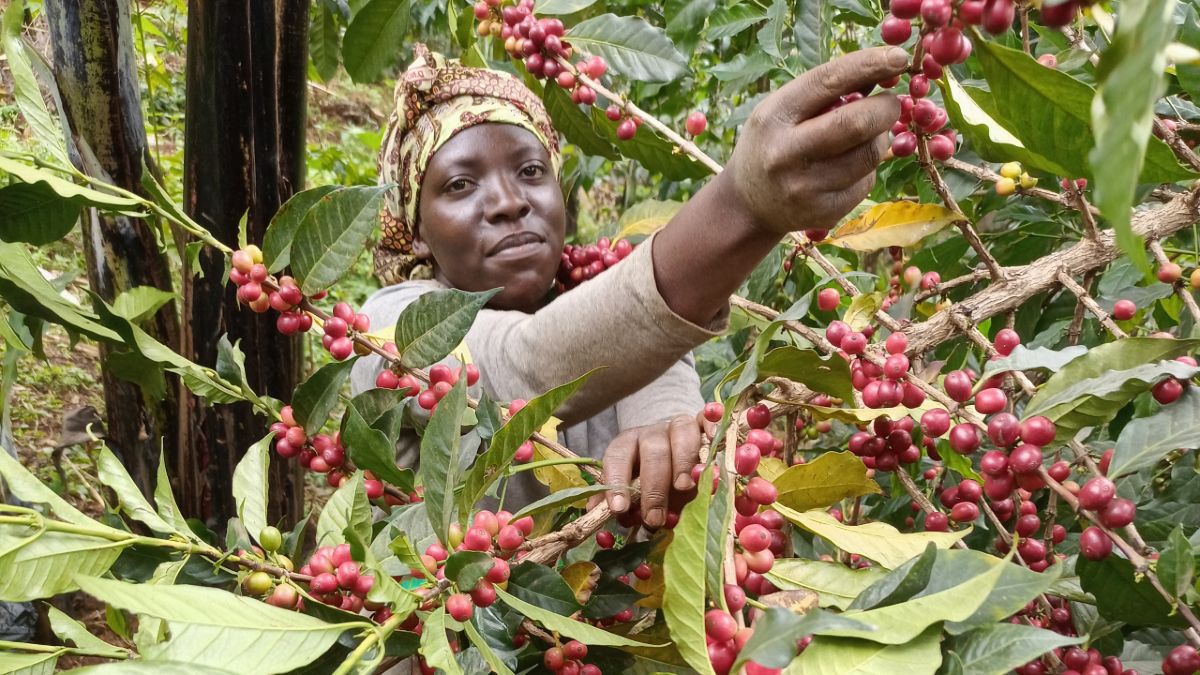
REVITALIZING COFFEE PRODUCTION IN UGANDA
Solidaridad has reached 9,000 coffee farmers in 7 districts with training aimed at promoting inclusivity, access to finance, climate-smart approaches and other good agricultural practices to enhance the sector’s productivity, profitability, and resilience, one farmer at a time
Results per commodity
Towards more sustainable value chains
Measurable impact in 7 commodities
Our growing portfolio provided us with the opportunity to design projects that respond to the emerging needs of producers in our target supply chains. Our new projects integrate a strong focus on climate change (mitigation, adaptation & resilience), food security, better incomes for downstream actors, sustainable livelihoods, advocacy and lobbying, and inclusivity interventions all of which are critical drivers of producers’ and communities’ enhanced adaptive capacities and resilience.
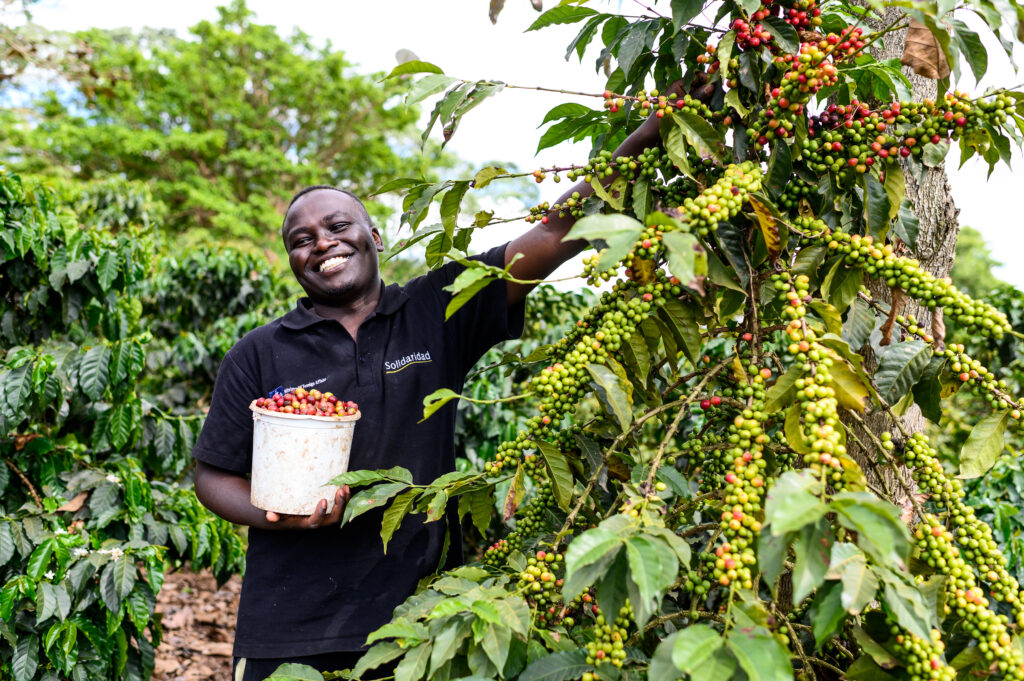
- 1,400 tons of sustainable cotton lint produced, contributing 4% to Ethiopia’s national production and 6.6% to the national textile mill share. Dansha Cotton Producer Union achieved 89% compliance with the sustainability practices under the Cotton Made in Africa certification requirements according to the self-assessment and verification tools.
- In the Afar and Tigray regions, 9,200 hectares of cotton farms are under sustainable land management practices. We distributed 6.1 tons of improved cotton variety seeds and 2,700 jute bags to smallholder farmers. Uptake of good production practices linked to improved compliance with certification principles, productivity per hectare, quality (Ginning Out Turn from 36% to 40%), fibre quality and low production costs.
- Outreach to 4,556 Ethiopian textile and garment factory workers for training on decent working conditions with 30% factories reporting improvements in occupational health and safety of workers. Seventy percent of the textile factories trained on best practices of OEKO-STeP or BSCI/WRAP international standards achieved certification.
- 609 workers from local tanneries, and experts from government institutes and one-stop service centres in Modjo City trained in solid waste management, pollution reduction, occupational health and safety, proper chemicals usage, and machinery safety in collaboration with the Ethiopian Red Cross Society and Ethiopian Standard Agency.
- In Colba and Modjo City, 2 tanneries were facilitated with de-salting machines for use in recycling salts used during preservation of raw hides and skins. The tanneries reported a 13% reduction in pollution load caused by chloride from the salts.
- In Tanzania, 877 farmers received training on good husbandry practices. 1,908 farmers accessed quality and affordable inputs and services through seven project-established commercialization dairy hubs. Farmers reported increased milk production from 2 to 4 litres per cow/day (earning 0.25 euro per litre and 360 Euros per year) to 7 litres per cow/day earning 540 Euros per year.
- Fifty farmers in the Tanga region received 50 calves valued at 135,000,000 Tanzanian Shillings [50,000 Euros] from the Tanzania Agriculture Development Bank. Twenty-five farmers accessed lines of credit for equipment (choppers) worth 32,500,000 Tanzanian Shillings from the NMB Bank, loan repayments are ongoing.
- In Ethiopia, two dairy hubs are under development and eight farmers have been trained as trainers on dairy hub management, including stock/inputs management, extension service provision and animal health. Eight villages were also identified for construction of milk collection centres and supplied with equipment, veterinary drugs and artificial insemination kits.
- In Ethiopia, we launched the World Bank funded Oromia Dairy Farmers Bounty project. The project will contribute to sustainable transformation of the Oromia dairy sector by promoting climate-smart dairy farming through service hubs.
- In Kenya and Tanzania, 13,939 horticulture farmers were trained on sustainable agronomic practices, including crop protection, hybrid seeds, health and safe, correct use of pesticides, environmental conservation, Integrated Pest Management (IPM), business management skills, gender and social inclusion, among others.
- Two nurseries were established to increase farmers’ access to quality seedlings in Tanzania. One nursery with a 12,000 to 20,000 fruit and vegetable and tree seedling capacity multiplied 75,080 tomato seedlings (Malkia variety) and 8,000 green pepper seedlings. Farmers sold 4,750 kilos of tomato at 0.16 euro/kilo (totalling 767 Euros) and reinvested the proceeds to expand the nursery business case.
- In Kenya, 4,812 growers were trained on financial literacy and linked to access quality farm inputs, while 380 farmers accessed financing worth 35,735,094 Kenyan Shillings [984,741 Euros] through commercial banks and Savings and Credit Co-operative Societies.
- Facilitated a meeting that brought together the Horticulture Sector Code of Practice Executive and Standard Implementation Committees to review, validate and approve the KS 1758:2016 standard. Also mobilized stakeholders in the potato value chain to discuss strategies for enhancing adoption and implementation of the Kenya National Potato Strategy, 2021-2025.
- In Kenya, we partnered with Syngenta to launch the Horticulture for Growth (H4G) project to improve the livelihoods, resilience and business case development of 30,000 horticulture smallholder farming households. In addition, we commenced implementation of the Louis Dreyfus Foundation funded Creating Shared Value in Maize Value Chain in Kenya, a food security and climate resilience project that contributes to improving the livelihoods and resilience of 3,000 smallholder maize farmers by driving innovation towards sustainable maize production systems.
- In Kenya, coffee productivity (kilos per tree) increased to 3.5kgs from an average of 2kgs in 2018 for small-scale farmers and 4.5kgs from 3kgs for medium/large-scale farmers. While in Uganda, productivity increased from 2.3kgs to 3.8kgs for small-scale farmers and 2.78kgs for medium/large-scale farmers. The improved productivity trend extends to Tanzania, where small-scale farmers recorded increased yields from 0.25kgs to 2.5kgs.
- In Kenya and Tanzania, we raised and distributed 900,526 improved variety coffee seedlings to farmers. In Kenya, we established 20 nurseries with a capacity to multiply 2 million seedlings by 2024, and in Tanzania, we distributed a total of 600,526 seedlings to 3,394 farmers.
- In Tanzania, we established 75 community microfinance groups/Village Savings and Loans Associations in the Ruvuma, Mbeya and Songwe regions with a total of 2,540 women members and trained them on financial literacy. Village Savings and Loans Associations members mobilized 358,498,400 Tanzanian shillings [144,674 Euros] in savings and disbursed the funds as lending to active women members.
- In Kenya and Uganda, we launched the From Climate Victims to Climate Heroes project which is aimed at linking smallholder coffee farmers who are implementing agroforestry to carbon markets.
- A collective of Uganda small tea growers were activated to form two national associations — Uganda Tea Outgrowers Association and Uganda Women Chapter in Tea. We also built the capacity of the associations, workers unions, and civil society organizations to strengthen and accelerate lobbying and advocacy on farmers’ issues, including fair prices and value addition opportunities.
- One nursery with the capacity of 400,000 tea seedlings was established at the Tea Research Institute of Tanzania to improve farmers’ access to improved variety seedlings. Construction of one nursery with a capacity of 200,000 seedlings has commenced with completion expected in April 2023. In Uganda, two tree nurseries were established and 40,000 tree seedlings distributed to farmers and planted.
- In Kenya, the national multi-stakeholder platform reviewed the Draft Kenya Tea Policy and made recommendations on gender and environmental gaps identified in the previous draft edition, evaluated the voluntary sustainability standards with the aim of harmonizing them, and established the Kenya Tea Platform which will convene and drive sector-wide dialogues. At the county level, multi-stakeholder platforms established the county Tea Working Groups to drive sector-wide dialogues.
- In Uganda, we launched the AFR100 project which will promote the adoption of agroforestry within tea landscapes. Through this project, we target to plant 415,000 trees by 2026.
- Solidaridad supported the development and adoption of a Self-Regulatory Framework to formalize mining operations in Kenya’s Kakamega, Migori, Narok and Turkana counties. While in Uganda, dialogues were facilitated on viable alternatives to mercury, environment and natural resources management, decent working conditions (including labour contracting), eradicating child labour, and strategies for improving miners’ uptake of sustainable mining practices.
- We supported artisanal gold miners in Kenya to establish regional committees that will strengthen lobbying and advocacy on sector issues and ensure their voices are heard and considered in decision-making. In collaboration with the Kenyan Ministry of Mining, we carried out public participation on the Artisanal Mining Strategy in Kakamega, Migori, Narok and Turkana counties. In Uganda, we facilitated a manifesto working group to review the status of implementation of the citizen’s manifesto on mining and petroleum.
- In Uganda, we supported one gold mine to host benchmarking excursions with potential investors to assess the mine’s bankability. Findings of the excursion will inform the technical proposition that will be made to the investors in 2023 to secure investment. Five gold mine sites in Migori were onboarded as partner mine sites in the equipment-leasing model facilitated by The Impact Facility.
Innovative Sustainability Solutions
Innovation for change
Driving sustainable impact
Solidaridad is a key player in developing innovative solutions to bring sustainable production to speed and scale in our target commodities to drive economic growth. Our sustainable production approaches are achieved by integrating digital innovations to reduce asymmetric information and enhance transformative finance to facilitate business growth. We also champion inclusivity to empower women and youth throughout the supply chain and promote approaches that enhance climate resilience and sustainable landscape management.
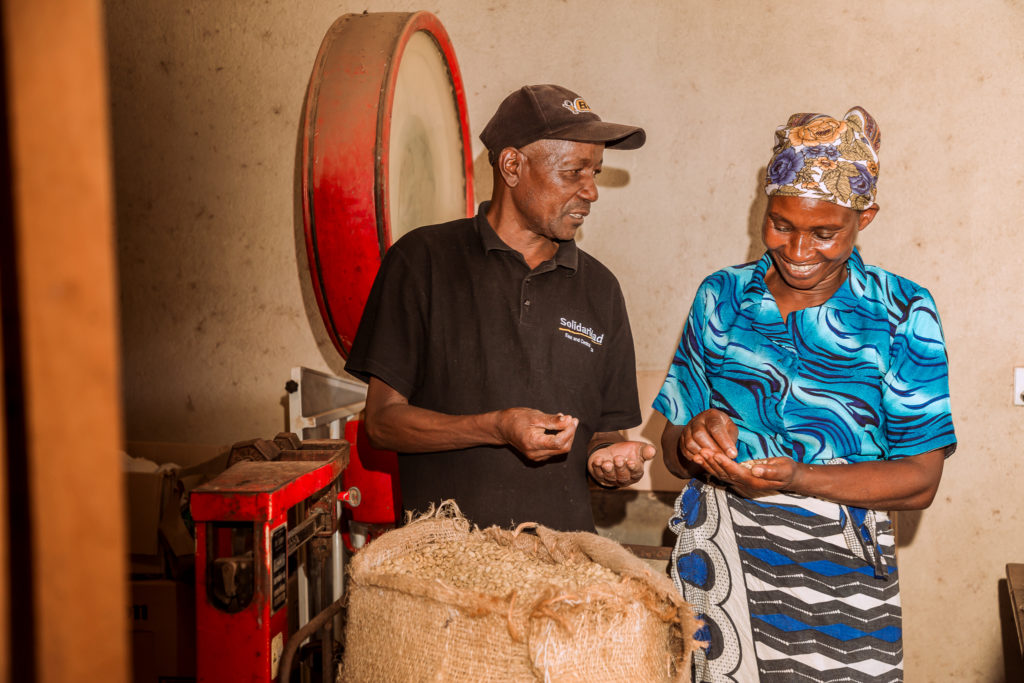
Solidaridad accelerated gender and social inclusivity interventions targeting households, communities, value chain actors, development partners and policy makers. In Ethiopia, Kenya, and Uganda, we broadened our Gender Inclusive Smart Villages through training and collaboration with gender champions at community level to demystify gender inequalities and social norms that negatively impact women, youth, and marginalized groups in our target value chains. In total, Solidaridad activated 500 gender champions and selected model villages, reaching 6,749 chain actors. The evidence-based approach triggered joint decision-making at the household- and community- levels in traditionally male-dominated sectors such as coffee, tea and gold.
Solidaridad implemented the Start Awareness Support Action! (SASA!) lobbying and advocacy methodology in the agriculture, cotton and textiles industries, and mining sectors. Five hundred gender champions were trained across the three countries to drive gender and social inclusion advocacy efforts at community level. In 2023, the champions will receive training and support to further advocacy initiatives targeting households, community leaders and other relevant power holders and stakeholders.
In the book Reimagining Civil Society Collaborations in Development, published by Routledge and funded by the Dutch Research Council, our gender experts contributed a chapter, called “REIMAGINING Development from Local Voices and Positions – Southern Feminist Movements in the Lead”.
We also established and strengthened our collaboration with partners such as CGIAR and Cross Roads international. CGIAR funded Solidaridad to conduct dialogues on youth and women inclusion in the horticulture sector in Kenya. Training on policy influencing and governance, climate action for sustainable agri-food systems and agricultural enterprise and development reached 192 participants.
Increasing smallholder farmer resilience by preparing them for the extreme and erratic weather patterns that challenge farming practices formed the bulk of our climate change and natural resource management interventions in 2022. During the year, we conducted Climate Vulnerability Assessments in seven counties in Kenya for the Solidaridad-Syngenta-funded Horticulture for Growth (H4G) project. Findings revealed gaps between practiced adaptation measures and their long-term responsiveness to impacts of climate change risks at both household and regional levels. Based on the recommendations, Solidaridad prioritized the design of implementation sites and risk-specific climate-smart packages to improve the resilience of smallholder farmers to climate change. In 2023, Solidaridad will continue to use the findings to improve the internal Climate Adaptation Index tool metrics to streamline data collection and design of evidence-based advisories and climate resilience solutions.
Through the Dutch National Postcode Lottery, funded From Climate Victims to Climate Heroes project in Kenya and Uganda, we onboarded the first cohort of 21,970 coffee farmers on the ACORN carbon trading platform. This is part of our strategic strides towards making carbon markets work for smallholder farmers in sub-Saharan Africa. We are building a business case for win-win agroforestry solutions as part of climate-smart agricultural practices. In addition to setting up farmers to earn from carbon markets, Solidaridad invested in equipping farmers with knowledge and skills to facilitate adoption of holistic regenerative agriculture and climate-smart agriculture practices.
In Tanzania, Solidaridad developed a business case for a youth settlement scheme for the Achmea Foundation-funded Dairy 2025 project. This process accelerated appraisal and approval of five youth to access loans or credit from local financial institutions in 2023. To increase their personal investment and improve the bankability of the youth-led enterprises, Solidaridad worked with the youth to invest about 10% from their own resources.
In Ethiopia, we facilitated our Leather Initiative for Sustainable Employment Creation project, funded by the European Union, to develop waste-to-value/recycling business plans for 4 tanneries in Modjo City which proposed waste refinement into glue, salt, protein hydrolysate and gelatin production. We led the drafting of the financial model for glue business, and the remaining tannery financial models will be developed in 2023.
During the year, Solidaridad actively participated in the Aspen Network of Development Entrepreneurs Climate and Environmental Action Lab. Solidaridad contributed to two concept developments: i) technical accelerator facility targeting small and medium enterprises (SMEs) in waste management; and ii) loan facility aimed at linking SMEs with working capital and capital expenditure. As an active member of the Aspen Network, Solidaridad will continue to support concept implementations in 2023.
In 2022, Solidaridad announced Cohort II of the GROWTH! Accelerator Programme attracting 28 applications from 26 micro, small and medium enterprises (MSMEs) and two cooperatives in Kenya. Training for the selected MSMEs will commence in 2023. GROWTH! aims to build the capacity of and improve financial management for sustainable and scalable inclusive agri-based MSMEs.
In Kenya, Tanzania, and Uganda, Solidaridad profiled and issued over 35,000 smallholder farmers with Farmer Identity Cards. Digitizing farmer records will enable Solidaridad to uniquely identify farmers and build farmer profiles using a scannable QR code. Farmers are issued with a decrypted sequence of ID numbers during the onboarding and registration process and will be monitored and targeted during the deployment of our customized suite of solutions, services and rewards. Specifically, it will harmonize data collection, progress monitoring, and field management tools for improved service delivery. In 2023, we will scale up the Farmer IDs issuance and roll out a blockchain solution aimed at ensuring transparency and traceability in the agricultural sector called SoilChain and Market Information System to improve access to market information in the tea and gold supply chains.
In Ethiopia, Solidaridad developed the Cotton Management System, a data collection and visualization tool for monitoring uptake and application of good practices by cotton farmers. We also developed the Solidaridad Textile and Garment Digital Assessment Tool, a self-assessment tool for compliance assessments on cleaner production in cotton and textile industries. Ten factories have enrolled, and we expect continued outreach in 2023.
To enhance our organizational knowledge management and learning processes, we developed an e-learning platform — J’Funze. Our gender and social inclusivity training programme was launched on the platform to facilitate continuous learning across East and Southern Africa. As of 2022, 24 internal and external gender and social inclusion champions had completed the course. In the same period, a lobbying and advocacy training programme was onboarded on J’Funze in readiness for roll out in 2023.
Organization & governance
A strong foundation
Fostering an inclusive and innovative work environment
2022 xxx
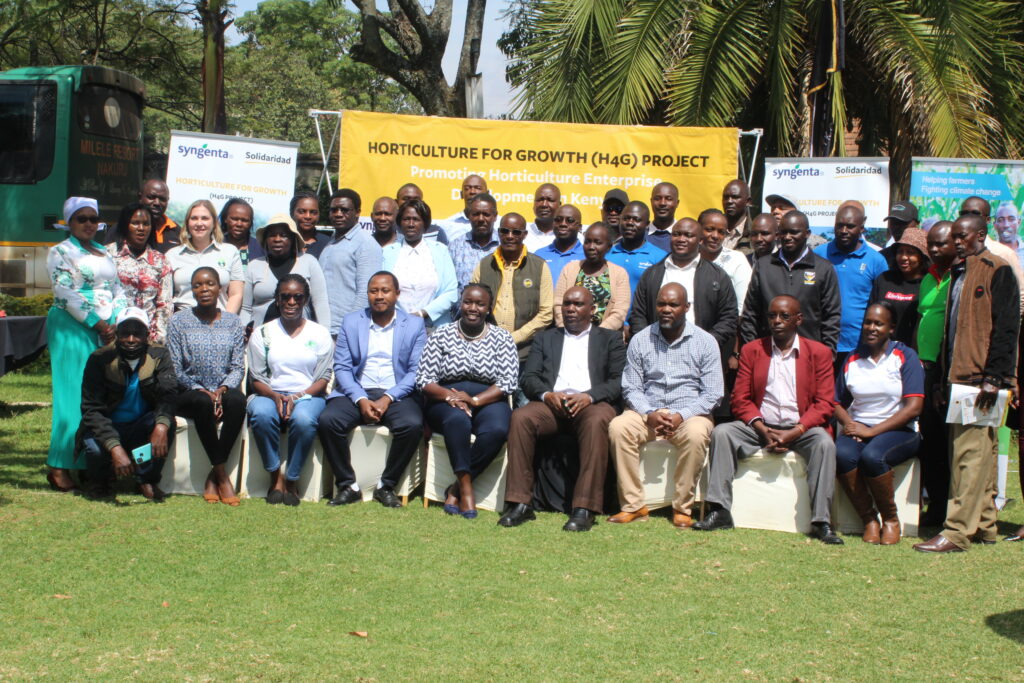

In 2022, we prioritized building a high-performing team to deliver on the goals and objectives found in our strategy. In accomplishing this, we were able to attract, develop and retain diverse talent in our countries of operation. As at December 2022 we had 101 staff spread in the four countries of operation (Ethiopia, Kenya, Tanzania and Uganda). Our full-time equivalent (FTE) stood at 94.5 slightly lower than our budgeted FTE of 111 representing a 51% and 48% male-to-female ratio, respectively.
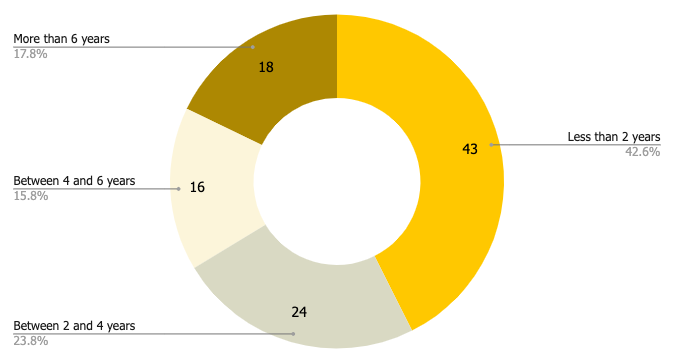
We held a joint leadership strategy meeting in Kenya between Solidaridad East and Central Africa and Solidaridad Southern Africa to learn from one another and identify areas of synergy. The two regions explored approaches and pathways for collaborative execution of the strategic goals and objectives and enhancing operations of the two regions under the possibility of one regional leadership.
We identified quick wins for collaboration in business development, gender and social inclusion, and digital teams. At the operational level, we explored joint programming, which included regional propositions, cross learning on best practices, and sharing of expertise, among others.
Under the RECLAIM Sustainability! programme there was alignment on shared goals and commodities (cotton, tea and food products). A mid-year review meeting for the RECLAIM Sustainability! programme was hosted in Mozambique and attended by teams from East and Southern Africa.
The East Africa team continued to participate in the network forums, such as the communities of practice, global expertise teams, Solution Development & Innovation team, and Global Linking and learning workshops. We also continue to effectively manage the RECLAIM Sustainability! programme, Partnership Coordination Unit which provides programme management of the global programme.
Solidaridad sustained its proactive and reactive fundraising and resource mobilization efforts to attract funding and partnerships for supply chain development initiatives. A total of 12 concepts and proposals were submitted and 6,567,406 Euros secured, reflecting a 100% success rate of our opportunity pipeline for the 2022 Annual Plan.
In the same period, we deepened our engagement with existing donors including the Ministry of Foreign Affairs, Danida Market Development Partnerships, European Union, National Postcode Lottery, Louis Dreyfus Foundation, World Bank, AFR100, and Syngenta, among others. Solidaridad, through its continuous outreach to prospective funders, also activated new partnerships with the International Fund for Agricultural Development and the Foreign, Commonwealth & Development Office with the potential of collaboration in 2023.
Through our project track records, we also established and/or strengthened our partnerships with local and national governments, as well as development partners, including Rippleffect and YobaforLife on work related to food and nutrition security and Plan Vivo on training farmers and staff on climate resilience through carbon farming.
In 2022, Solidaridad made strategic investment in its data collection systems to improve overall efficiency, data quality and evidence-based programming. During the year, selected projects introduced Farmer IDs for a total of 35,000 farmers in East-Africa (see also: Digital Inclusion Solutions). These IDs will facilitate real-time data collection, improve data quality (timeliness and accuracy), deployment of project interventions, and impact monitoring. To ensure accuracy in data estimation for key indicators, such as the number of hectares under sustainable land management practices, Solidaridad also adopted technologies such as geo-polygons, which are captured during farmer profiling/registration exercises. We commissioned Kobo, a data collection tool, to streamline primary data collection and storage.
Other key planning, monitoring, evaluation and learning activities included baseline evaluations for the Ethiopian Dairy Farmers Bounty Project and Leather Initiative for Sustainable Employment Creation Project, as well as final project evaluation for the Dairy 2025 — Catalyst for Investment and Climate Dairy Farming Project. According to the dairy project baseline in Ethiopia, farmers are comfortable with the market for milk and somewhat comfortable with the milk prices offered in the market. The challenge faced by farmers revolve around access to livestock input services (cooling facilities, loans for expansion of milk enterprises and fodder/forage). Findings from the Dairy 2025 evaluation outlined challenges in the commercialization of fodder production linked to limited demand. The report also revealed that most dairy farmers in Tanzania grow their fodder, practice poor storage methods and would not be the primary buyers for commercialized fodder systems.
Through the Dutch Ministry of Foreign Affairs funded RECLAIM Sustainability! programme, we were able to commission four fair value distribution surveys for coffee, gold, tea and food products value chains in Kenya and Uganda. Findings provided insights into the specific bottlenecks farmers, workers and miners face in accessing and sustaining equitable markets for, and receiving benefits from, their produce and/or services offered. Preliminary findings provided a basis for sector-led dialogues including multi-stakeholder platforms on policies at community, national and regional levels.
Through our partnership with media civil society organizations — Water and Environment Media Network Uganda and Kenya Environment and Science Journalists Association — we also conducted multi-faceted community and media campaigns to provide platforms to amplify citizens’, producers’ and stakeholders’ voices. The campaigns were held through local barazas (meetings) featured in media — local radio and national television, newspapers. In addition to raising awareness on fair pricing, incomes and wages, the campaigns demanded decent and safe work, environmental protection — including mercury-free gold mining — gender and social inclusivity and enabling policies.
In 2023, the survey findings will be analyzed and key recommendations packaged into policy briefs for use in high-level lobbying and advocacy with policy makers, governments and other actors in the value chains. The policy briefs will also inform the agenda for multi-stakeholder platform dialogues.
Solidaridad deepened relationships with media outlets in Kenya, Uganda and Tanzania. Across these countries, we partnered with local and national media outlets to set and drive a sector-wide agenda on various themes including climate resilience, inclusivity, fair value distribution, policies, and natural resource management. Over 30 articles were featured in digital and print media and more than 30 stories and events featured on radio and TV news. To amplify sector priorities and trigger stakeholder action, our technical teams also participated in radio and television panel discussions alongside project beneficiaries and policy makers.
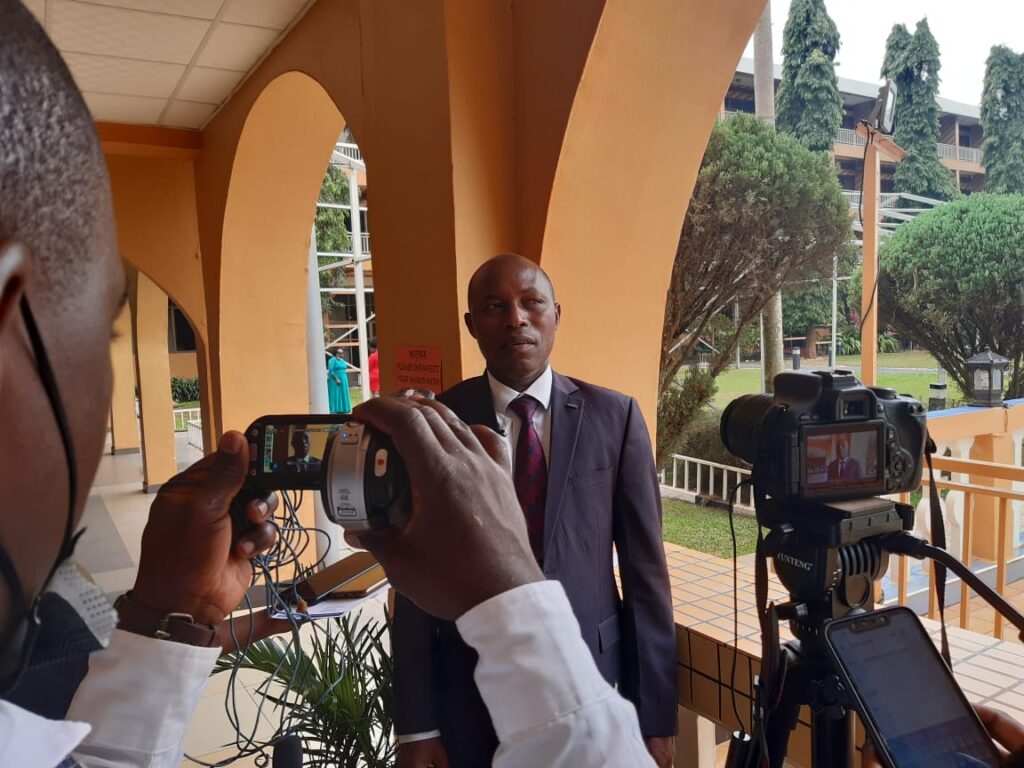
Throughout the year, we intensified our role as a thought leader through our contributions to dialogues and actions related to food security, gender and social inclusivity and climate resilience. During the World Food Forum, we hosted a webinar on Youth and the Future of Food in sub-Saharan Africa to promote dialogue on opportunities for youth-led action and their role in delivering healthy diets and safeguarding our planet. In partnership with the Global Compact Network Kenya, we hosted a multi-stakeholder discussion called “Towards Tangible Climate Action: Bridging the Gap Between Planning and Action in Kenya”. We also joined other international and national actors at the Africa Climate Week and COP27 to expand our networks and strengthen collaboration with actors in the climate space. Solidaridad participated in a panel discussion at COP27 called “Climate and Water Smart Agriculture”, alongside Care Egypt, FAO, and SEKEM Group. The event was organised by NL-Masr Agri-Food Network, Clim-Eat, and Wageningen University, among others.
To respond to the ever-changing business environment and its internal needs, Solidaridad conducted a review of its information, communication and technology policies and procedures to ensure alignment with country-specific legislations e.g. data privacy, and seamless implementation in Ethiopia, Kenya, Tanzania and Uganda. Solidaridad reinforced its digital security measures through the implementation of web and mobile O-Auth and 2-step authentication for applications and other measures for in-house databases and servers. To improve efficiency in delivering services to internal and external customers, our team commissioned the automation of documentation, such as partner/consultant contracts, memorandum of understanding and payment requests. The automation process reduced the turnaround time for document processing from two to three days down to five to 10 minutes.
As part of our network-level collaboration and cross-support, our East and Central team provided consultancy services to other regional expertise centres (e.g. Solidaridad Asia) and the Network Secretariat. In collaboration with Global IT, our IT team proposed additional security features for implementation on the Solidaridad Network domain as part of our network efforts to improve cyber security.
Following the implementation of our Whistleblower Protocol in 2021, a regional Integrity and Inclusivity team led by an Integrity Advisor was constituted to provide leadership and oversight the implementation of integrity-related efforts — risk prevention, detection and response. In addition, Solidaridad nominated Persons of Trust in Ethiopia, Kenya, Tanzania and Uganda to facilitate communication and incident reporting at the country level to enhance adherence to our Code of Conduct. To foster open discussions on and mitigate potential breaches, we also provided training on the Whistleblower Protocol and Code of Conduct.
A total of 84 staff were also sensitized on the incidence reporting protocol and flowchart. Two cases of conflict of interest were reported and appropriate corrective measures taken. In the same period, Solidaridad East and Central Africa and Solidaridad Southern Africa teams collaborated to develop joint inclusivity action plans. Joint implementation is scheduled to commence in 2023.
Finance
In 2022, our annual income reached 6.5 million Euro, representing a 27% increase from the previous financial year.
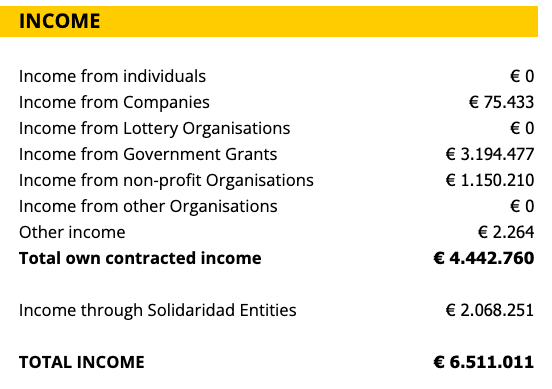
Implementation of the annual budget – 8.3 million Euro – was affected by among other things late disbursement of funds by donors in Tanzania and armed conflict in project regions in Ethiopia. This led to a lower than planned overall expenditure of 6.5 million. In the reporting period, nine projects commenced, among them two secured in collaboration with Solidaridad Europe and one with Solidaridad Southern Africa.
The annual budget for 2023 is projected at 9.2 million Euro.
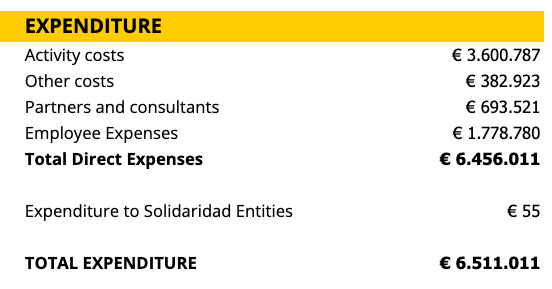
The implementation expenditure on the ground for 2022 was Euro 6.5 million, in line with the income over 2022. This is 819 thousand Euros lower than the previous year. The annual expenditures were affected negatively by late donor remittance in Tanzania and armed conflict in project areas in Ethiopia. Nine new projects were started in 2022, two collaborating with Europe and one with Southern Africa.
The full audited annual statements are available below.
Solidaridad East and Central Africa Expertise Center (SECAEC)

